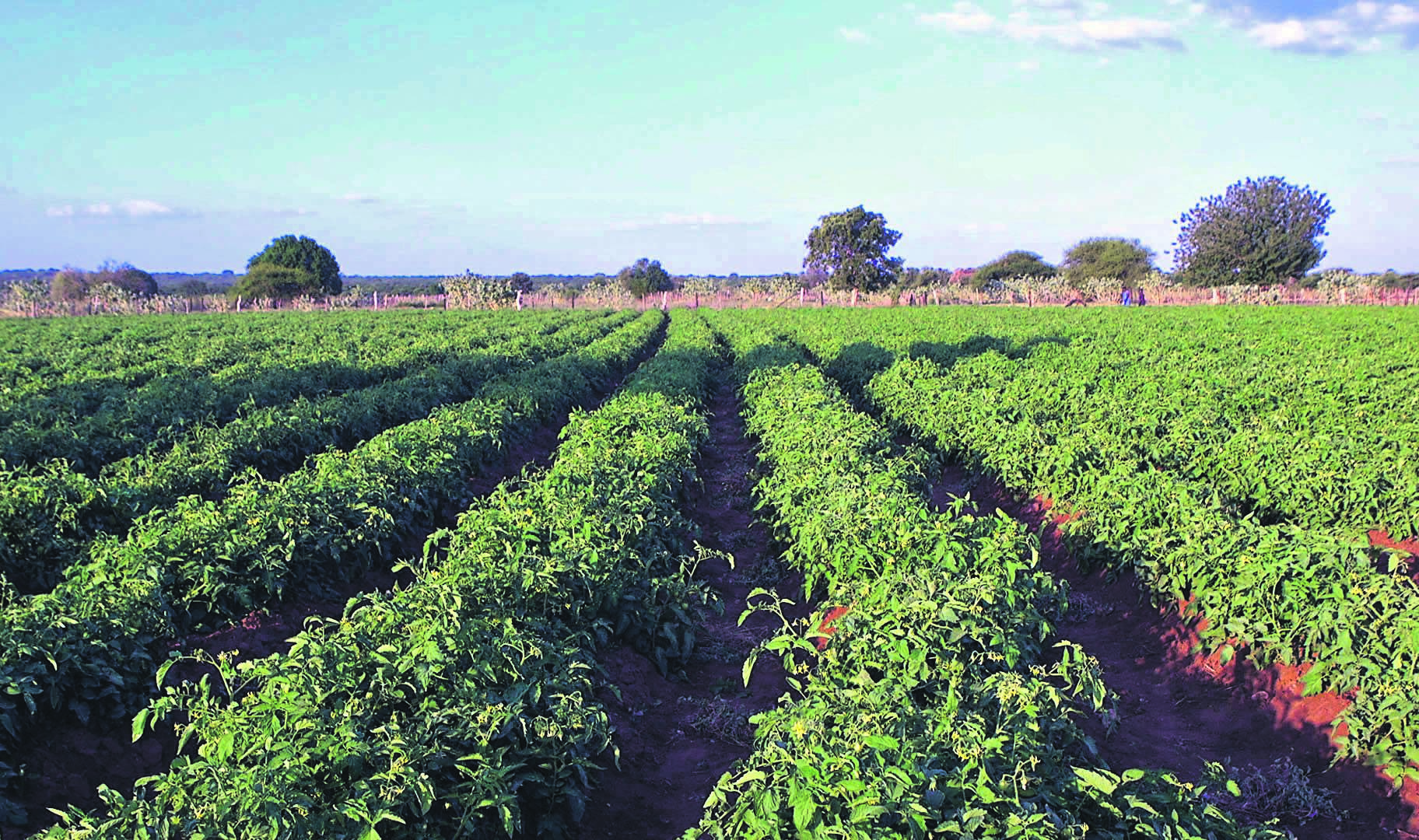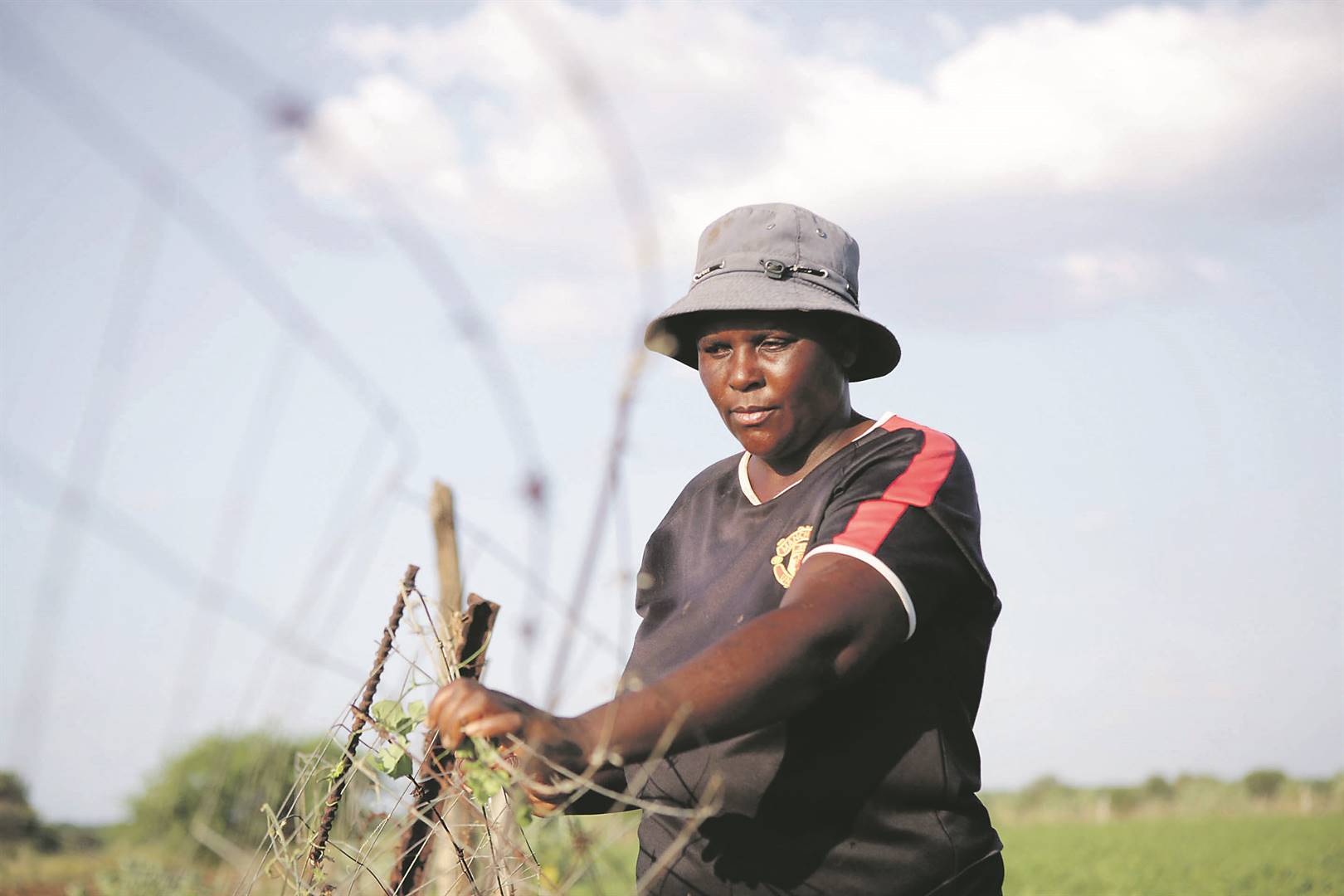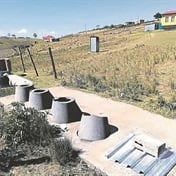
Government’s plans to secure the border with Zimbabwe as part of the Covid-19 regulations have not stopped marauding elephants from destroying crops in a South African village, writes Chester Makana
When night falls in Gumbu in Limpopo, residents start worrying about the herds of elephants that wander into their village from across the border in Zimbabwe.
They destroy their fields, costing them a lot of money.
This is such a headache for the villagers that there’s less talk about the Covid-19 coronavirus pandemic.
When Mukurukuru Media visited last month, the virus that has shut down the world was furthest from the minds of the villagers.
People here face a lockdown of a different kind every day.
The village is located about 100km east of Musina, the closest town to the border.
Almost every household owns a garden for self-sustenance, and small-scale commercial farming thrives here.
The village, 5km from the Limpopo River, which forms the international border with Zimbabwe, falls way out of the protection of the controversial R37 million, 40km fence erected recently by government.
It was a costly project that Public Works and Infrastructure Minister Patricia de Lille has had to defend, since it has already been vandalised, allegedly by people crossing into South Africa illegally.
The department approved the construction of the 1.8m-high fence that runs for 20km on either side of the Beitbridge border post.
Government has since deployed members of the SA National Defence Force to the area for patrols as part of the Covid-19 regulations.
But this is cold comfort for the Gumbu residents, who have no protection from the fence.
Unlucky farmer Salphina Mudau’s crop was a casualty of the roaming elephants this year when they destroyed her tomatoes.
“This is the first time my farm has become a target [of the elephants]. In the past, we used to hear neighbours complaining about elephants devouring their crops. They are destroying our crops now. As you can see, I am still planting on the other side, but I am not sure if I will harvest and make a profit,” Mudau said.
A heard of marauding elephants repeatedly pushed down her fence on the farm – eating and trampling on her tomatoes and other crops – as they passed through.
The 48-year-old discovered that the elephants were devouring her crops after some locals unsuccessfully tried to chase them away.
Like many farmers in the area, she is still traumatised by one incident in which an elephant trampled and killed a man who had gone into the bush to look for his cattle.
Mudau was optimistic that her harvest would increase and the proceeds from the sales would help her grow her business this year.
After the late December rains, Mudau and her husband started planting, and they watered their crops using groundwater. But the ongoing invasions mean she may not reach the projections.
Since the invasions escalated during the rainy season, Mudau no longer leaves her farm late in the day because she fears that, once the sun goes down, the uninvited guests will move in for grazing and she could get hurt.
“Previously, I would allow the workers to leave and I would remain on the farm working – removing weeds and doing additional [crop] spraying.
“Now it is scary. I can’t do that any more. When we go home, the elephants move in and start eating our crops. We are no longer safe,” said Mudau, who employs at least 20 workers.
She started farming in 2008 and has been recognised for her efforts.
Starting off small, after four years, Mudau was crowned the best Limpopo woman back yard farmer of the year.
That inspired her to move into large-scale farming. But today her livelihood is threatened by the jumbos that roam freely.
Her husband and two workers usually join a group of other men for night vigils around the farms.
They use torches to patrol the tomato fields and check the bush around the farm.
She said guarding the farms and patrolling was popular until recently, when an elephant trampled a local member of the community to death.
In the past, Mudau and other villagers used to spend the night on their farms sitting around bonfires.
They thought the animals were afraid of the fire, but the elephants proved them wrong.
“Two years ago, we made fires. The elephants just passed through the fields and ate all our watermelons,” she said.
The community members reported the herd to the environmental authorities in the area, but this has not helped much.
While walking through Mudau’s field, another farmer, Portia Kaunda, who was standing by the fence, asked with concern if she was leaving soon as it was getting dark.
“These elephants are making it very difficult to do business,” said Kaunda, a tomato farmer who has been in business for seven years.
Community leader Mahwasane Mudzweda said that, on hearing about the destructive elephants, he called wildlife officials to have the animals chased back into the wild.
Mudzweda said the elephants came from neighbouring Zimbabwe and they roamed freely as there was no fence on the border between the two countries on the eastern side.
“These elephants move from Zimbabwe to our areas. Last year, rangers had to kill one that was terrorising our neighbouring village,” said Mudzweda.
The farmers pointed out that they depended on only two rangers to deal with more than six elephants.
The conflict between humans and wildlife in this area is part of the ongoing heart-breaking stories in areas near wildlife parks across the world.
For years, the Gumbu villagers’ livestock shared grazing with animals from Zimbabwe.
But the invasion by elephants is giving the villagers sleepless nights. Mudzweda said something had to be done to help farmers protect their fields.
Another villager said elephants were not the only problem. Lions and hyenas also posed a serious threat to their livestock.
“They move in and out [of the area] at will. Even our livestock graze in fear. If you see the cattle running, it’s a signal that their territory has been invaded [by these predators],” said Mudzweda.
Even wood collectors have stopped venturing too far into the bush in fear of the elephants.
Although there are no statistics, villagers said a number of people had been killed by the huge beasts.
The 22nd African Forestry and Wildlife Commission held at the Kruger National Park recently heard how communities on the continent suffered from the ongoing human and wildlife conflicts.
Edward Samuriwo, Zimbabwe’s director of Environment and Natural Resources, said the country was struggling to manage its population of more than 46 000 elephants.
Samuriwo said that, due to a lack of grazing in the national parks, their elephants threatened villagers on both sides.
A ban in wildlife trading under the Convention on International Trade in Endangered Species of Wild Fauna and Flora (Cites) agreement, means Zimbabwe cannot sell elephant trophies, which used to bring in a lot of revenue.
Joseph Hailwa, Namibia’s director of wildlife and forestry, said countries that were struggling with wildlife overpopulation, such as Zimbabwe, should be allowed to sell some of their wildlife products.
He said some countries had stockpiles of ivory and were unable to sell it because of the Cites ban.
He proposed that Cites should be petitioned to relax the ban.
“We have reached a maximum carrying capacity for animals. Let us be allowed to manage our resources,” said Hailwa.
According to Kristina Rodina, the UN Food and Agriculture Organisation’s forestry officer for wildlife and protected areas, the organisation has found that there are no policies designed to mitigate human and wildlife conflicts in most countries.
“There is a lack of independent policies and strategies to address human and wildlife conflicts,” she said, adding that an effective multisectoral approach was needed to deal with the ongoing conflicts.
– Mukurukuru Media
TALK TO US
Do you think countries like Zimbabwe should be allowed to resume the sale of ivory?
SMS us on 35697 using the keyword ELEPHANTS and tell us what you think. Please include your name and province. SMSes cost R1.50. By participating, you agree to receive occasional marketing material
 | ||||||||||||||||||||||||||
Get in touchCity Press | ||||||||||||||||||||||||||
| ||||||||||||||||||||||||||
| Rise above the clutter | Choose your news | City Press in your inbox | ||||||||||||||||||||||||||
| City Press is an agenda-setting South African news brand that publishes across platforms. Its flagship print edition is distributed on a Sunday. |




 Publications
Publications
 Partners
Partners









